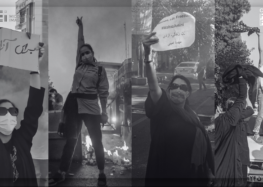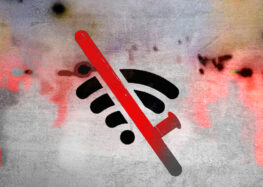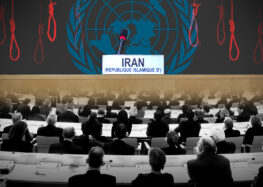The National Internet And Domestic Politics in Iran
Officials in Iran have attributed the delays and uneven progress in the development and implementation of the country’s National Internet to technological problems, difficulties created by international sanctions against the country, and budgetary constraints. Yet these delays must also be seen within the context of the political infighting that has accompanied the project.
Hardliners, ensconced in the security, intelligence, and judicial services, and dominant in the Iranian Parliament, view Internet freedom as tantamount to opening the gates to the enemy, and are pushing hard for full implementation of the National Network. The Rouhani administration, however, is more ambivalent about its support for the National Network. It views Internet freedom as part and parcel of the economic revitalization and modernization of the country, which is the central priority of the administration. Thus while the Rouhani administration is amenable to creating the National Network, and has in fact supported its continued implementation, it has also signaled that it doesn’t wish to preclude access to the global Internet.
Indeed, the Rouhani Administration has several times explicitly denied any intention to prevent Iranians’ access to the global Internet. President Rouhani’s Telecommunications Minister Mahmoud Vaezi assured opponents of the National Information Network that its launch would not result in a cut off from the global Internet. “I assure you that this will never happen,” he said and added that the National Network would become operational in 2015, increasing the capacity of the Internet from 70 GBs per second to 700 GBs per second. In addition, a number of ministers in Rouhani’s administration are openly active on social networks such as Facebook and Twitter, sending a strong signal that activities on these international social networks are acceptable.
This political infighting has played out in the budgeting allotted to the Network. Nasrollah Jahangard, the secretary of the Supreme Technology Council and Deputy Minister of Telecommunications, said in a speech at the Society and Cyberspace Conference in Iran in February 2014 that in order to implement the remaining commitments of the National Information Network over the next four years, as detailed in the five-year development plan, $50 billion in investments was needed—but that the government had so far allocated only $17 billion in state funds for it.
The Rouhani administration has argued that the government does not have any more funds available in the budget to allocate to the project. Yet hardliners in Parliament continue to push for more funding, arguing that it is national priority, a position in accordance with their view that open Internet access is a threat to national security.
Recent statements made by officials in the Rouhani Administration appear to signal a slight shift in their strategy regarding the National Internet. While hardliners have kept to their vision of the National Internet as a wall encircling the country, preventing any access to the global Internet, the administration now seems to envision a National Internet in which walls around the country are present—but with (government-controlled) gates to allow communications with the international community through the global Internet, albeit under tight security controls embedded in the network to monitor users.
Iranian officials do not shy away from admitting that the National Network will enable government agencies to monitor the activities of online users. Ali Hakim-Javadi, the former head of the Information Technology Organization in charge of implementing the National Information Network, and the current head of the Fourth Telecom Operator (IranianNetCompany), said in an interview on February 19, 2014, “There are certain mindsets especially among the young generation who fear they will be monitored if they use National Internet services. But the fact is that all Internet users everywhere are monitored.”
Asked if he did not think monitoring users would be a breach of individual privacy, Hakim-Javadi said, “Be sure that even at present all the activities of users online are being watched but they aren’t aware of it. But there are legal issues involved in monitoring. One of the issues we have in our country regarding cyberspace is that we have few laws. Therefore we must define the legal frameworks and do some cultural work to let people know that they are being watched. We have no technical problems as far as surveillance is concerned.”






